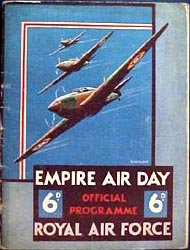
Well, OK, the Commonwealth Games then. British Empire Games was the original name: the first were held in 1930 in Hamilton, Canada. Most of the world probably has not heard of the Commonwealth Games, but it's second only to the Olympics (which it closely resembles) in terms of bringing the greatest number of elite athletes together in the one festival of sport, some 4500 in all, in 71 teams. That is to say, only those elite athletes who happen to come from Commonwealth countries (more or less, the former British Empire). So no irritating Team USA swimmers to challenge Australian dominance of the pool -- instead the big competition there will be from England and South Africa. I think we're safe! In fact, Australia usually dominates the medal tally, which as a sports-mad nation suits us just fine. (Just don't mention the fact that our arch-rivals New Zealand beat us in the 1930 Games!)

It's not all about sport, of course, politics can intrude; and there are often controversies -- 32 countries boycotted the 1986 Games because of British sporting contacts with South Africa. This year there was an argument over whether to play "God Save The Queen" at the opening ceremony, a bit of a touchy issue in a republican-leaning country like Australia. (Apparently a few bars were played as a compromise.) And the Stolenwealth Games website (a nicely done parody of the official website) is part of an effort to use the games "to raise awareness about the issues of Genocide, Sovereignty and Treaty" in relation to indigenous Australians. One controversy I haven't seen raised here is that of countries who want to participate but aren't deemed eligible. Well, I say "countries" but they aren't universally acknowledged as countries, which is why there is a problem. An example is Cornwall. England, Scotland, Wales, Northern Ireland, Guernsey, Jersey and the Isle of Man all have their own teams, and the Cornwall Commonwealth Games Association wants a Cornish team to take part in the 2010 Games in Delhi. The problem is that while it can lay claim to a somewhat unique administrative history, has its own not-quite dead language and a recognisably Celtic heritage, Cornwall has not been an independent entity since the Middle Ages. Unlike the other parts of the UK sending teams, it's a part of England. But as my ancestors hailed from Cornwall, and I find the place and its history intriguing, I'm happy to ask "Where's Cornwall?" and display the CCGA's logo above. (The black and white flag is St Piran's, the flag of Cornwall or Kernow as it is in Cornish.)

Getting back to the British Empire Games, it seems to me that there was a vogue in the interwar period, and perhaps especially in the 1930s, for prefixing the word "Empire" or "Imperial" to various events and schemes. Aside from the Games, there was Empire Day and Imperial Preference. In my own area, there was Empire Air Day and the Empire class flying boats; Imperial Airways and the Imperial Airship Programme. Perhaps with the Dominions "growing up" and increasingly going their own way (the Statute of Westminster was passed in 1931), there was a desire to reinforce the ties of culture and sentiment with something more practical. And of course aviation was an ideal technology for such a purpose.

So why am I writing about all this? Because the 2006 Commonwealth Games are being held in my own town of Melbourne; the opening ceremony was just held a few hours ago. Security is of course an issue: helicopters have been flying all over the place, a very visible police presence, and the Australian Defence Force (including my younger brother) is apparently around somewhere, doing security checks and providing backup. Blue "games lanes" have been painted on a nearby road for the exclusive use of officials and athletes, though mere mortals seem to be ignoring the risk of a $165 fine for using it without a permit. The Games proper begin today. Of course, I won't actually be going -- as an inner-city resident, I will be affecting a suitable air of disdain and watching it all on tv.
Image sources: Wikipedia (British Empire Games flag and Melbourne 2006 Commonwealth Games logo); Cornwall Commonwealth Games Association; Plane Crazy Heritage.




